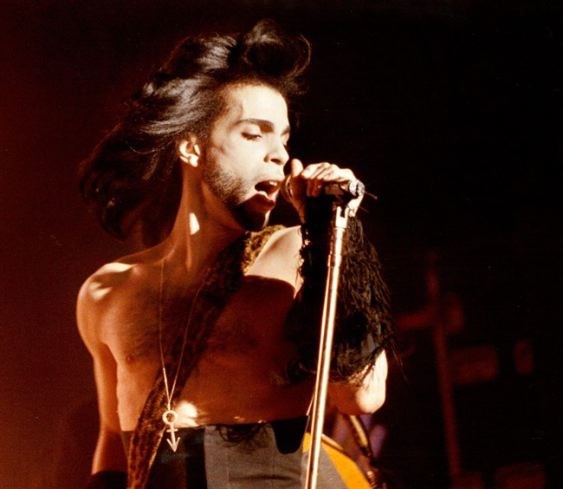What a tragic year it's been for music fans.
David Bowie, Glenn Frey and now Prince. All members of the Rock and Roll Hall of Fame, all groundbreaking artists who delivered beautifully crafted visions never heard before.
Unlike Bowie and The Eagles, Prince Rogers Nelson had to break down racial and music industry barriers as well. In the early 1980s, both pop and rock radio and MTV were fiercely white. It didn't matter what the music sounded like. If a black man was singing, that was rhythm and blues, so it belonged on a station devoted to soul and R&B. In 1982, there was no broadcaster, at least in the United States, where a listener could hear Bowie, The Eagles, Michael Jackson and Prince on the same station.
Jackson and Prince were the one-two punch that forced American radio and MTV to broaden their formats. They adjusted not because they wanted to but because the fans demanded it.
Both Jackson and Prince rebelled against R&B standards and what was an acceptable level of success for a black artist. They wanted to make music everyone listened and danced to, not just for black audiences. Both started in the late 1970s as solo artists, making funky disco records. Jackson's next step was into pop while Prince strapped on a guitar and started rocking.
In late 1982, within a month of each other - Prince in October and Jackson in November - they served notice to the music world. Jackson's release was Thriller, of which little needs to be said. Prince's double album, 1999, was right up there, too, as one of the best sellers in 1983, powered by three infectious singles - Little Red Corvette, Delirious and the title track. Jackson worked with teams of musicians under the watchful eye of Quincy Jones to make safe songs - "the doggone girl is mine" - but Prince's songs were self-produced one-man efforts, filthy and dripping with blatant sexual metaphors - "move over, baby, give me the keys, I'm gonna try to tame your little red love machine."
The chart success of Little Red Corvette and its soaring guitars led directly to Purple Rain, the movie and the album that made him a superstar. For those who say the 1980s was a musical wasteland, the summer of 1984 was glorious with Purple Rain, Van Halen's 1984, Bruce Springsteen's Born In The U.S.A. and Bryan Adams's Reckless dominating the charts. U2 broke through with Pride from The Unforgettable Fire, R.E.M. hit with South Central Rain (I'm Sorry) from Reckoning and Metallica unleashed Ride The Lightning, their middle-finger response to Bon Jovi and hair metal posers.
Purple Rain is - pound for pound - one of the best albums of the 1980s and one of the best records ever, all hits and no filler. It's incredibly diverse and filled with some eccentric musical choices - no bass on When Doves Cry, the vocal track played in reverse at the end of Darling Nikki and the long string section to wrap up Purple Rain, both the song and the album.
While Jackson spent the rest of his career and his life trying to top Thriller, Prince refused to be trapped by the commercial and artistic high-water mark of Purple Rain. He turned the guitars down and started making pop records after that with 1985's Around The World In A Day, best remembered for Raspberry Beret, 1986's Parade, featuring Kiss, and 1987's Sign o' The Times, both the album and an excellent concert film, featuring the title track and I Could Never Take The Place Of Your Man.
Although he slipped off the charts after doing the Batman soundtrack in 1989, he continued putting out new music at a torrid pace compared to his contemporaries - about one new record per year - and toured relentlessly. His fearless performance during a wind and rain storm at the 2007 Super Bowl halftime show was classic Prince - the consummate professional not letting the elements, a slippery stage or fear of electrocution stop him from delivering what many consider one of the best-ever halftime performances, complete with a fine cover of the Foo Fighters' Best of You.
Like Bowie, Prince never stopped putting out new material, never stopped pushing boundaries of music, gender, sexuality, fashion and style. Like Jackson, Prince used fun, original music to get everyone on the dance floor and shatter racial stereotypes and industry bigotry.
So much good music left behind by such a talented performer and cultural pioneer.
If the elevator or anything else tried to bring him down, Prince's jubilant response was to "punch a higher floor."
That he did.



